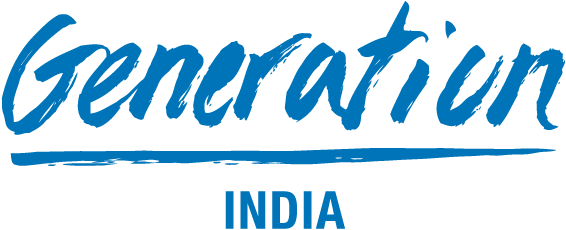A Look at the Careers Least Impacted by AI

Artificial intelligence (AI) is transforming the workforce, automating repetitive tasks and reshaping industries. However, not all jobs are equally affected. Some careers remain resilient to AI disruption due to their reliance on human creativity, empathy, or physical presence.
If you’re a job seeker interested in these sectors, here’s a quick breakdown. Get started with the skills you need in these and other roles through Generation’s employment programs.
Careers Least Impacted by AI
Healthcare and Social Services
Healthcare professionals, such as nurses, doctors, therapists, and social workers, rely heavily on human interaction and emotional intelligence. AI can assist with diagnostics and data analysis, but it can’t replace the compassion and personalised care these roles require. Jobs in elder care, counselling, and rehabilitation services also remain in high demand as the global population ages.
Education and Childcare
Teachers, tutors, and early childhood educators depend on interpersonal skills and adaptability. While AI can support learning through tools and virtual platforms, the core of education still relies on human engagement to inspire and mentor students. Roles in special education and early learning, which require customised support, are particularly resistant to automation.
Skilled Trades and Craftsmanship
Jobs that require manual dexterity, precision, and practical knowledge — such as those of electricians, plumbers, carpenters, and mechanics — are less susceptible to AI replacement. These professions involve hands-on problem-solving and physical work that AI and robotics struggle to replicate effectively.
Creative Arts and Design
Writers, artists, designers, and performers thrive on originality and human emotion — qualities AI struggles to mimic. While AI can generate content and assist with creative tasks, it lacks the depth of thought, cultural context, and emotional nuance that define human artistry.
Mental Health and Wellness Services
Therapists, psychologists, and wellness coaches provide support that depends on empathy, trust, and personal connection. AI tools may complement their work, but human interaction remains central to these roles.
Environmental and Conservation Roles
Jobs focused on sustainability and environmental protection, such as those performed by conservationists, environmental scientists, and agricultural specialists, require fieldwork, observation, and decision-making abilities that AI cannot fully automate. These roles are becoming increasingly important as societies address climate change and resource management challenges.
Hospitality and Customer Service
While AI can assist with bookings and inquiries, hospitality jobs — such as those of chefs, hotel managers, and event planners — rely on personal service and adaptability. Human interaction is critical to delivering memorable experiences in these fields.
Preparing for Stable Careers With Generation
For those looking to enter or transition into AI-resilient careers, Generation’s employment programs provide hands-on training and pathways to meaningful employment. Generation focuses on equipping job seekers with the skills employers need in sectors such as healthcare, skilled trades, and customer service. Our programs emphasize both technical skills and behavioral skills and mindsets, such as communication and adaptability, which are vital in AI-resistant roles.
Generation also partners with employers to connect participants directly to job opportunities, helping to bridge the gap between training and employment. Whether you’re starting fresh or switching careers, we have the resources to future-proof your career in high-demand fields.
Explore employment programs near you today!
Embracing AI for the Future
While some careers may be less impacted by AI for now, learning to work alongside this technology can provide a key competitive edge. Our recent AI research findings highlight how midcareer workers in particular can stand to gain a lot from honing their AI skills.
In our survey results, more than half of midcareer and older workers in the US and two-thirds in Europe who are using AI regularly reported that it is improving their work quality and pace, with nearly half of workers across all markets adding that it allows them to do more advanced or higher-level work, and about a third saying it helps them make better decisions. Thirty-five percent (35%) in the US and 58% in Europe even said AI makes their jobs more enjoyable. In addition to productivity and satisfaction gains, AI literacy also helps midcareer workers stay employable, contributing significantly to their fields until retirement.
Take the Next Step
Whether you’re considering a stable, AI-resilient career or looking to future-proof your current job, now is the time to act. Explore Generation’s programs to gain the skills you need and stay ahead in an evolving job market.
Invest in your future today. AI may be transforming work, but with the right training, you can thrive alongside it.
At Generation, we are making a life-changing career available to anyone, anywhere. Explore our employment programs to see the professions we support, or donate today to help us create career opportunities for our learners!
